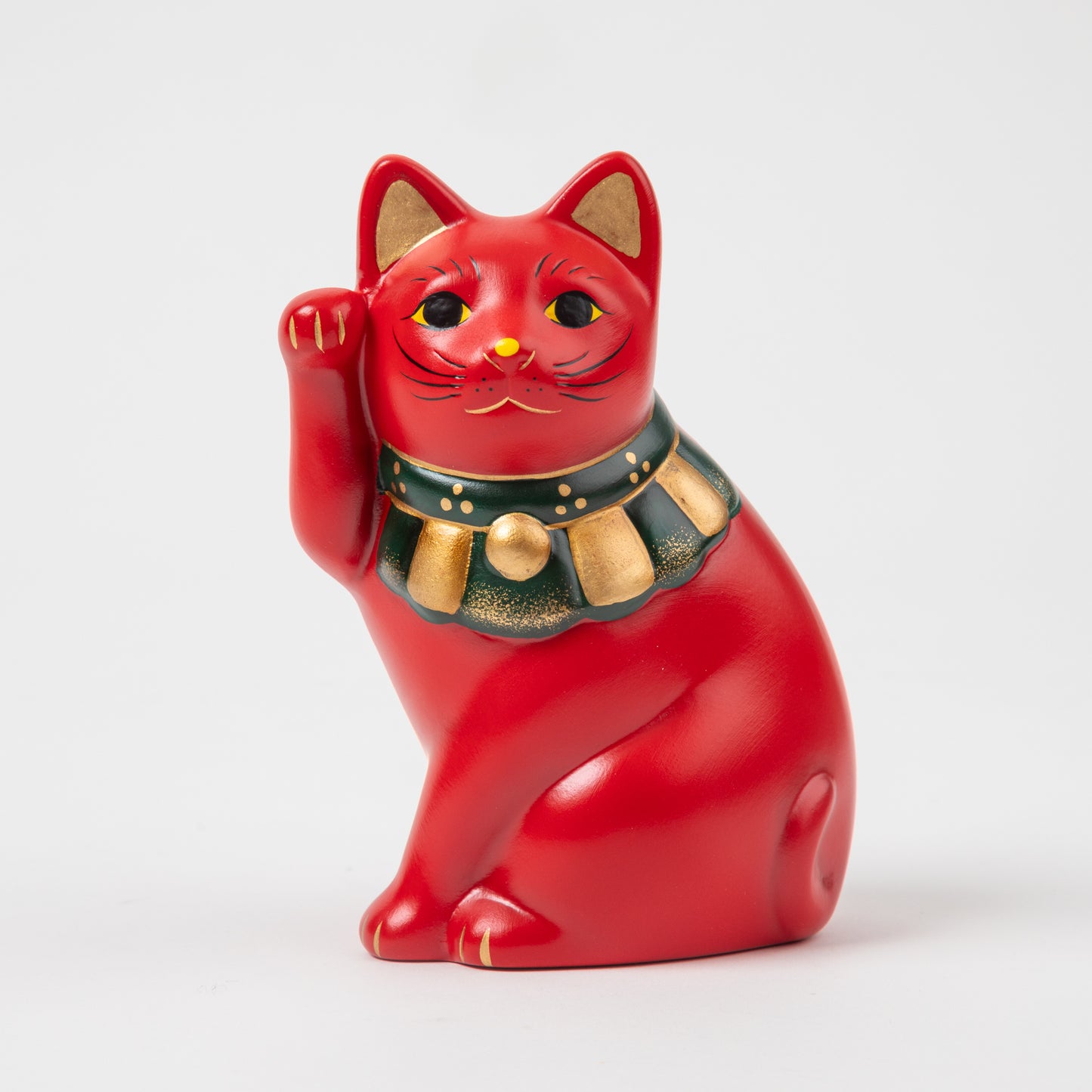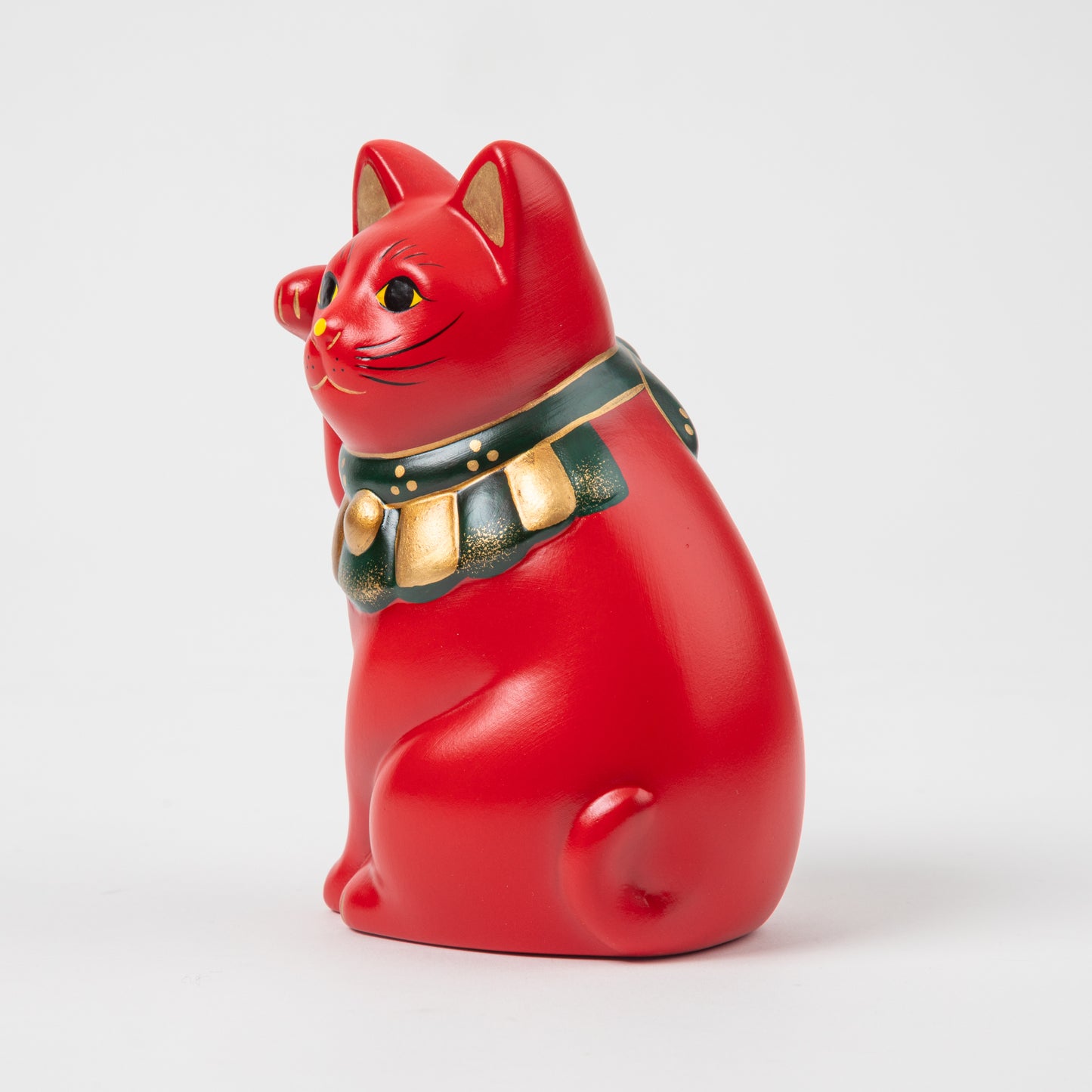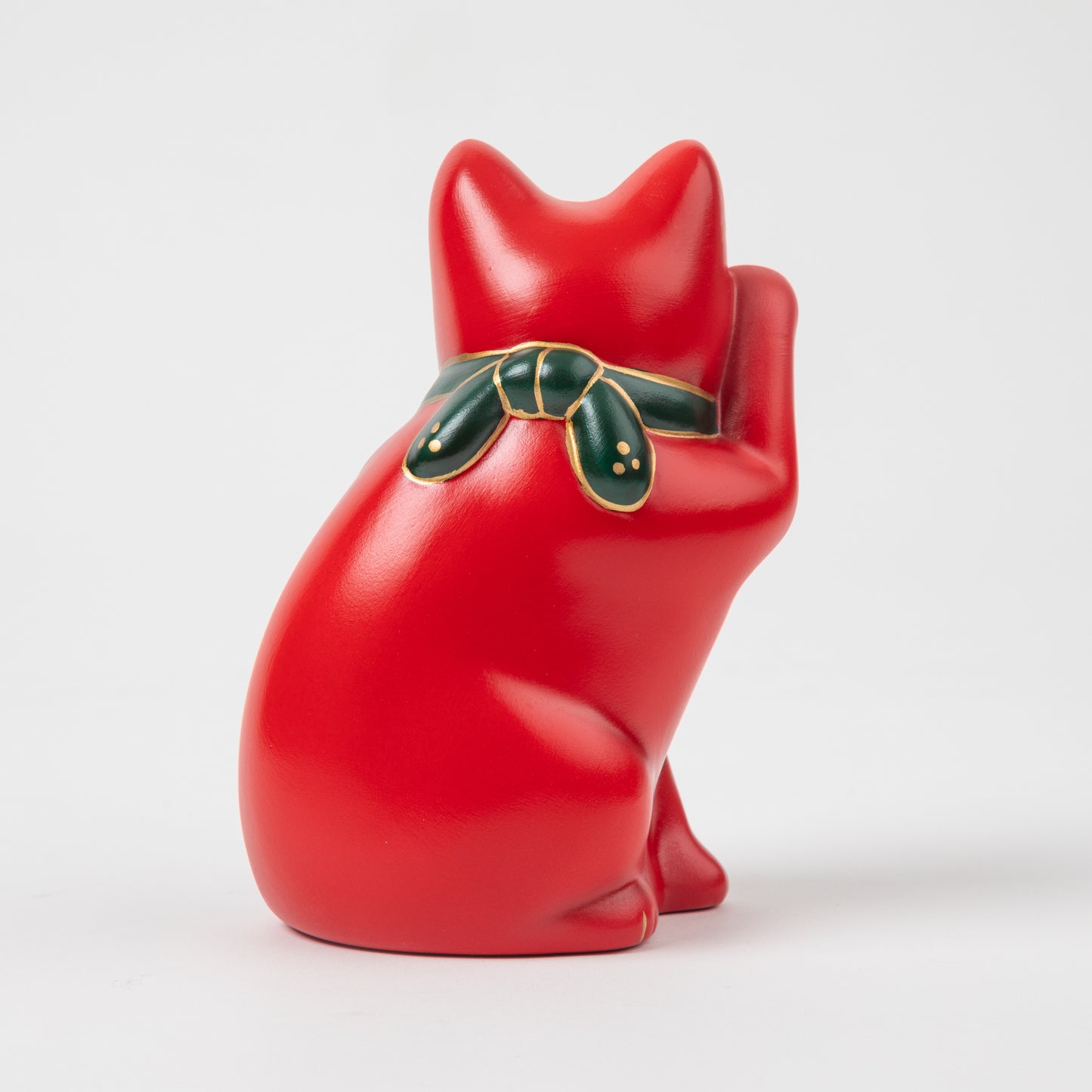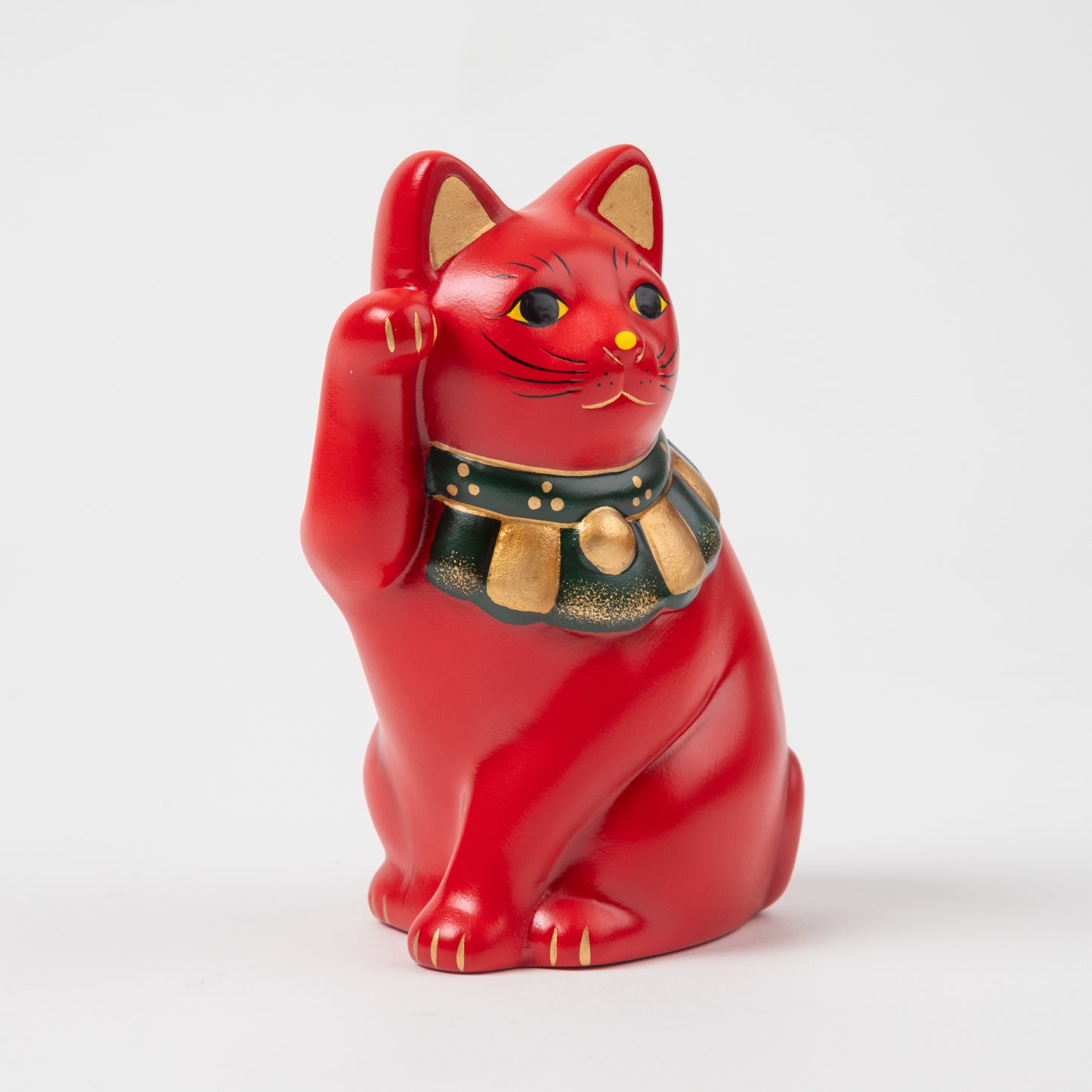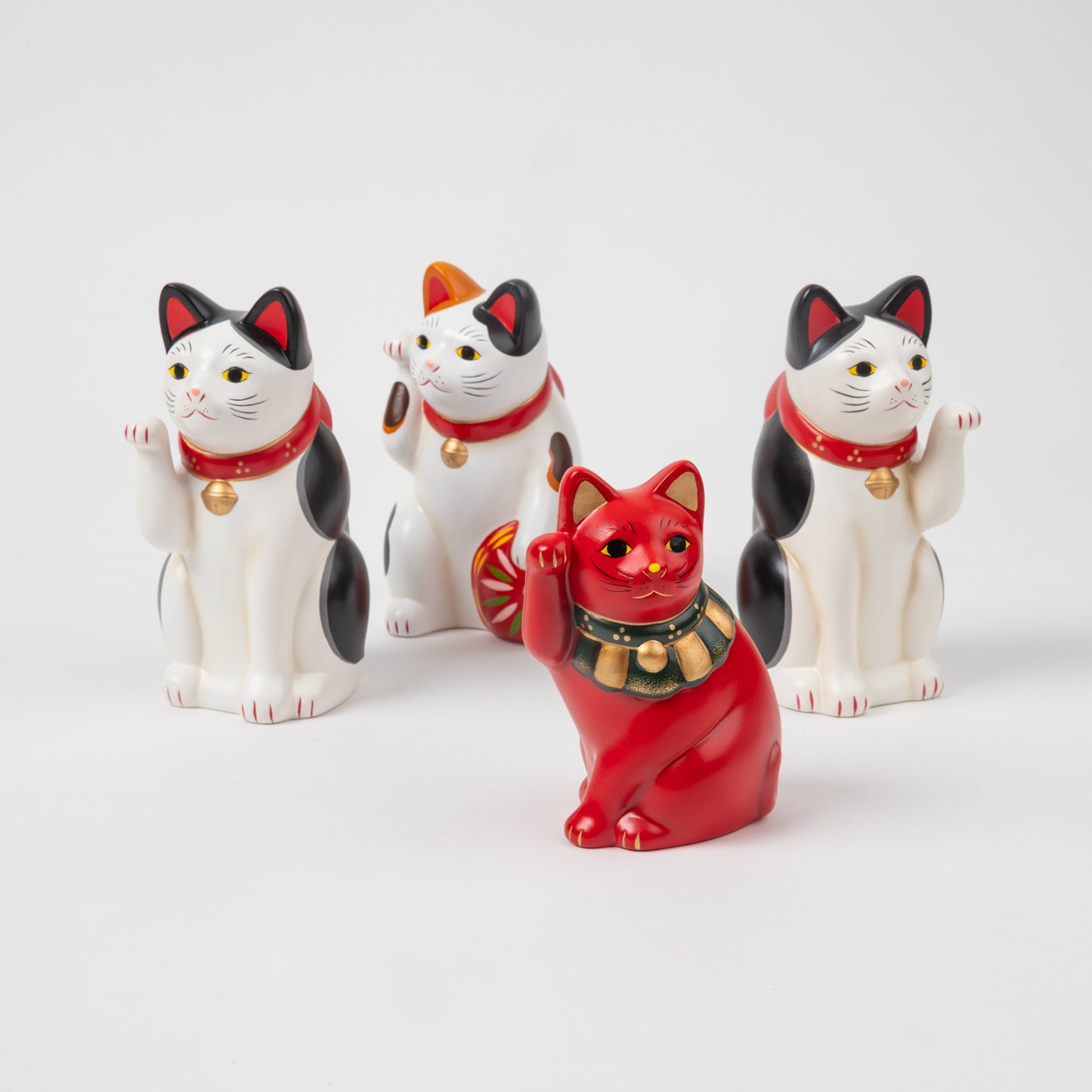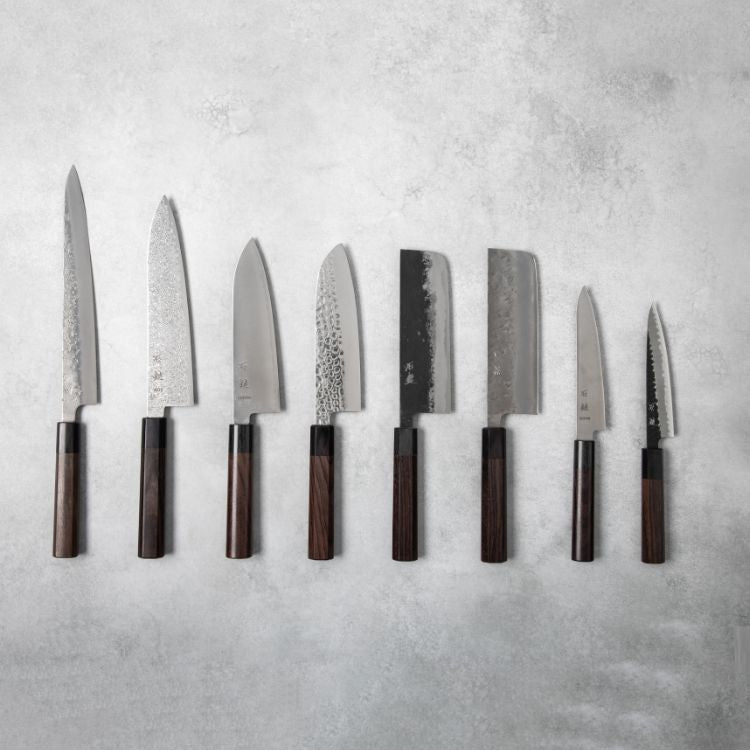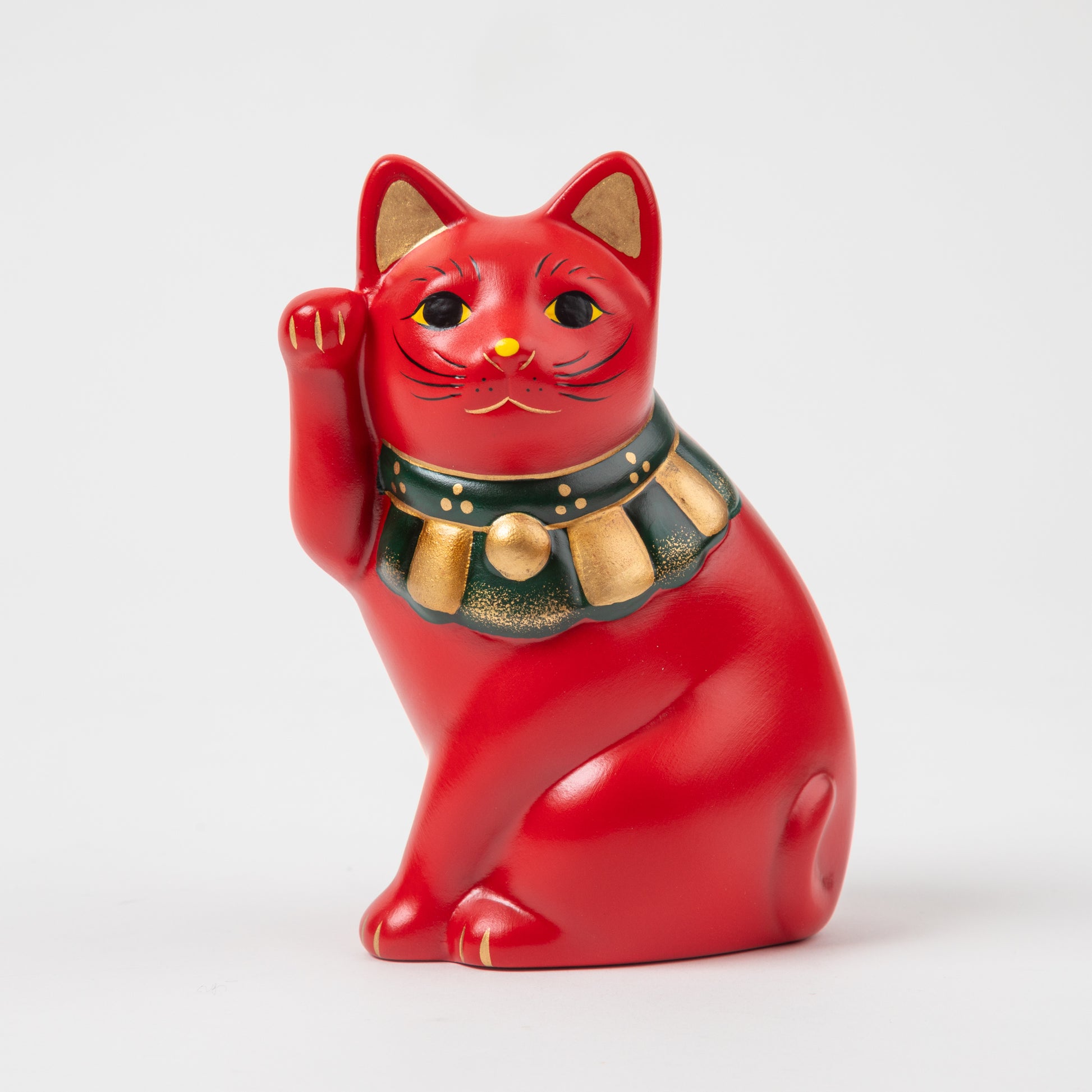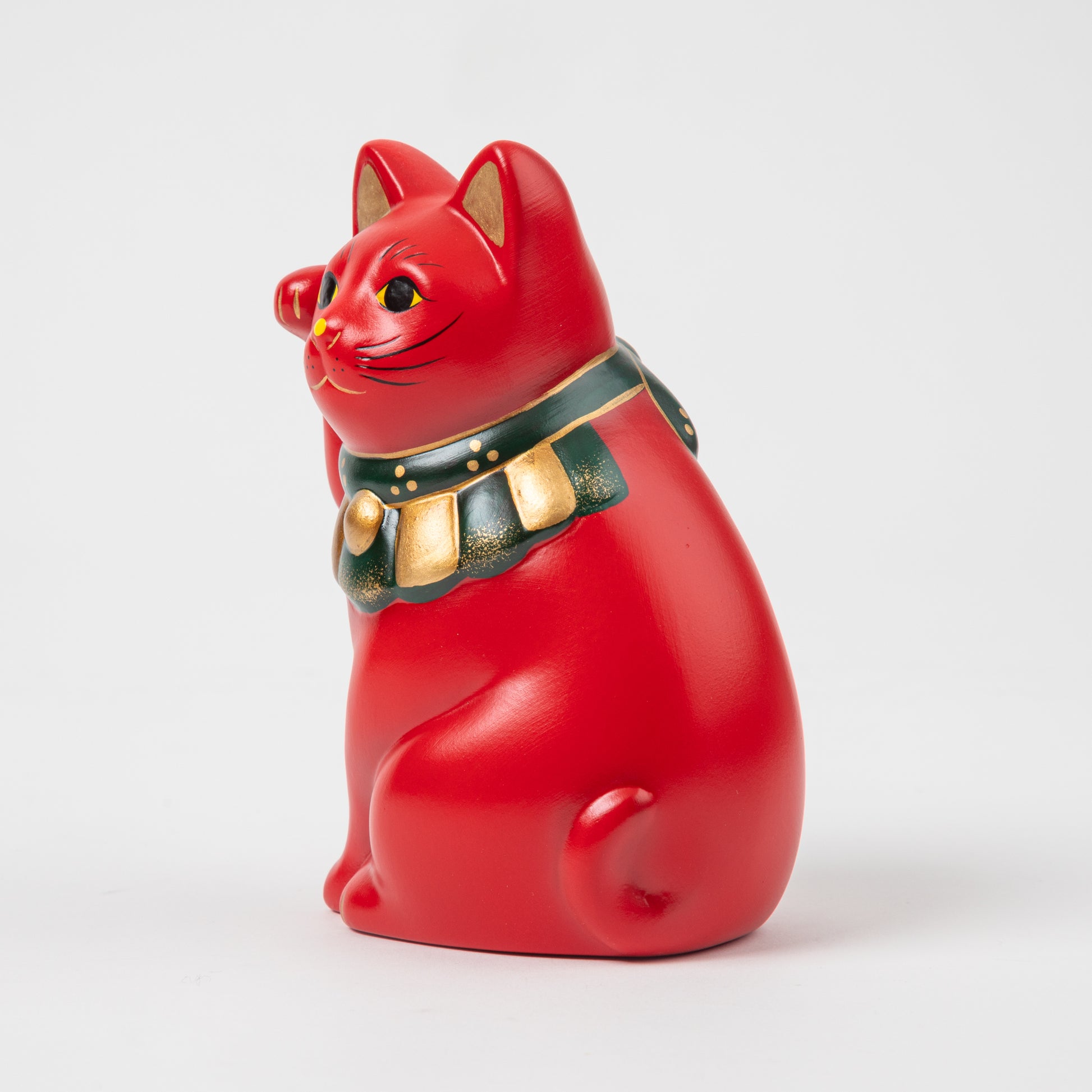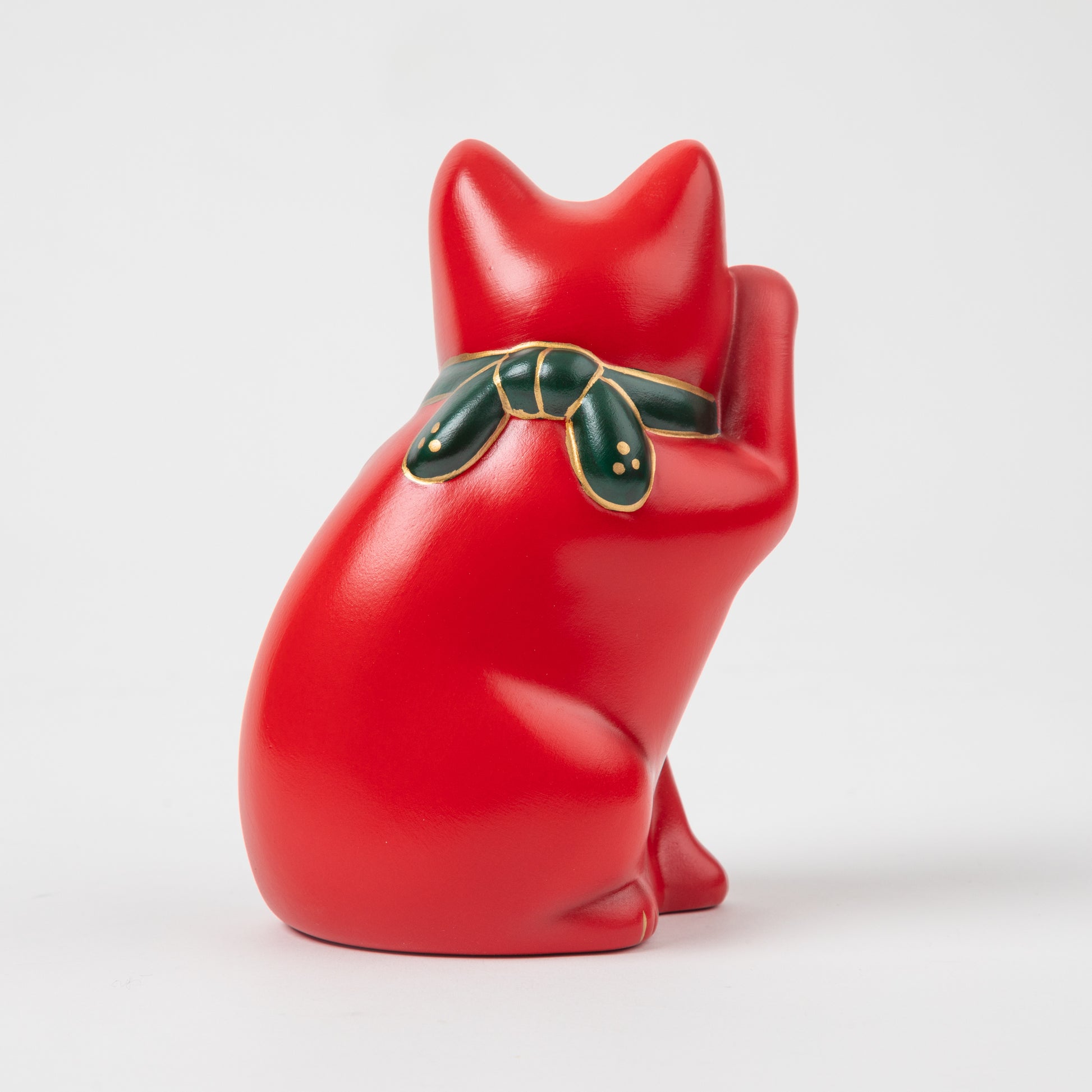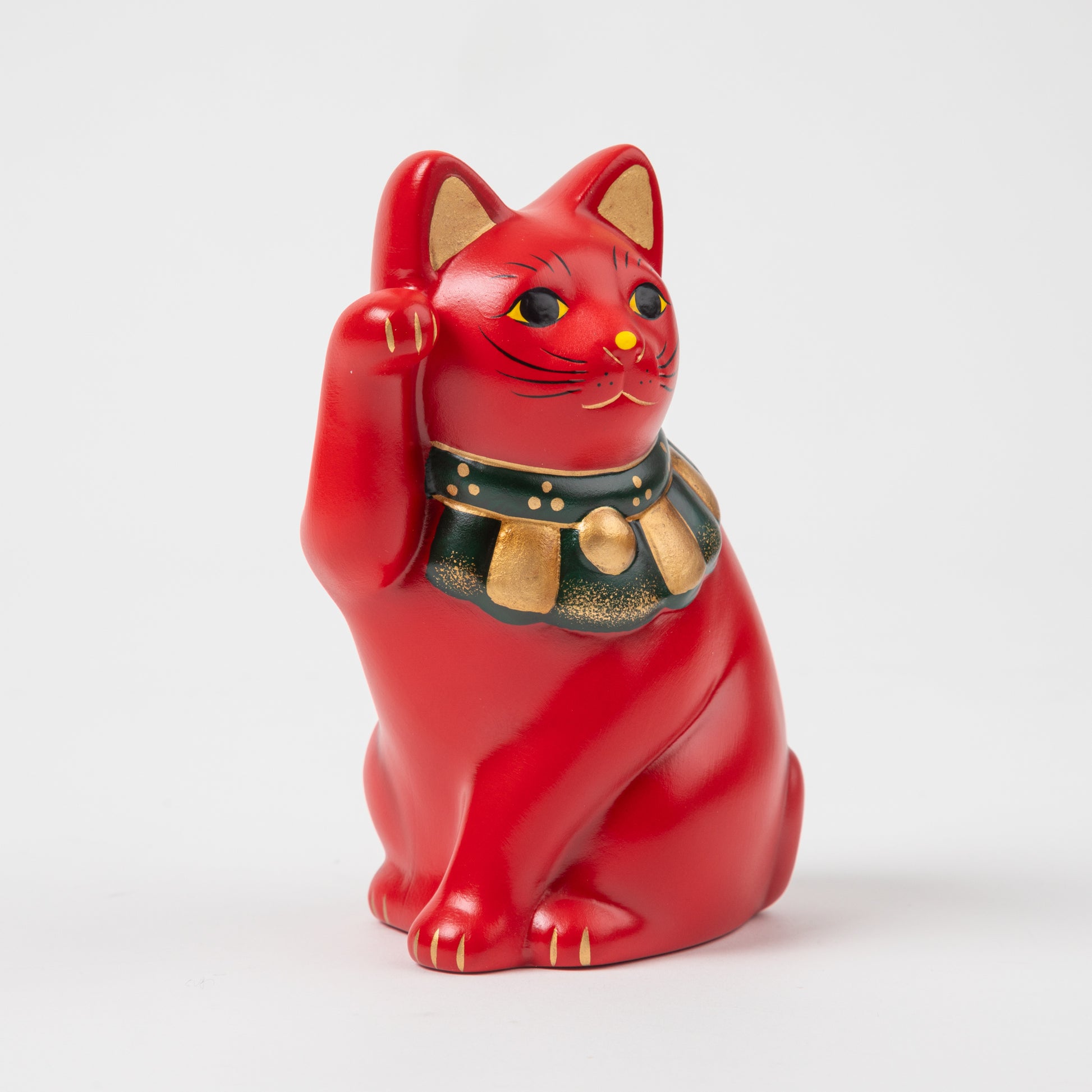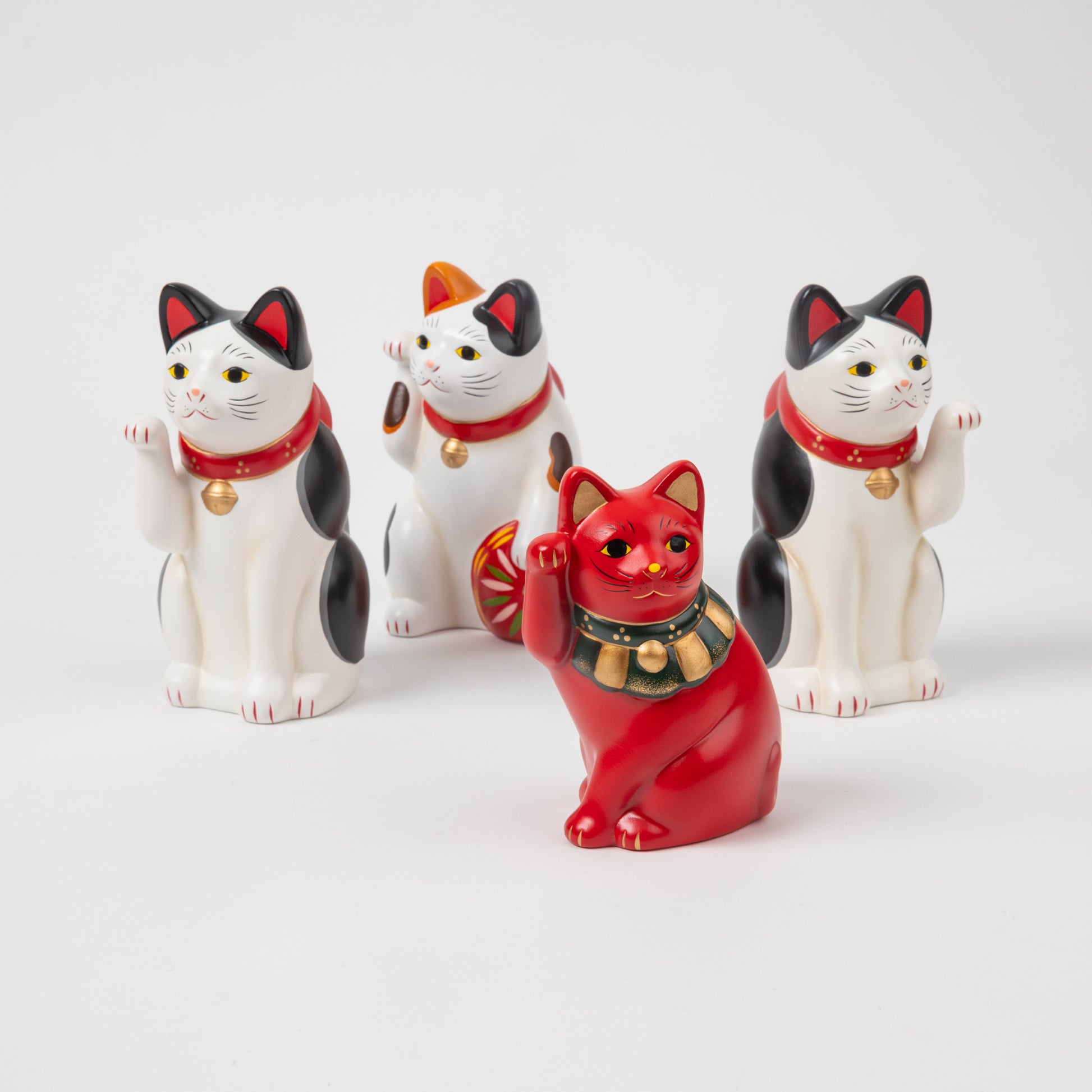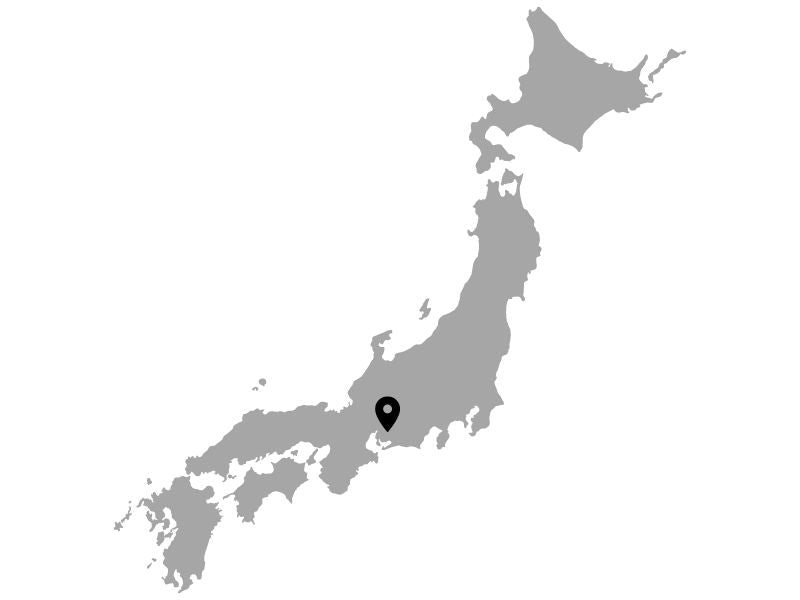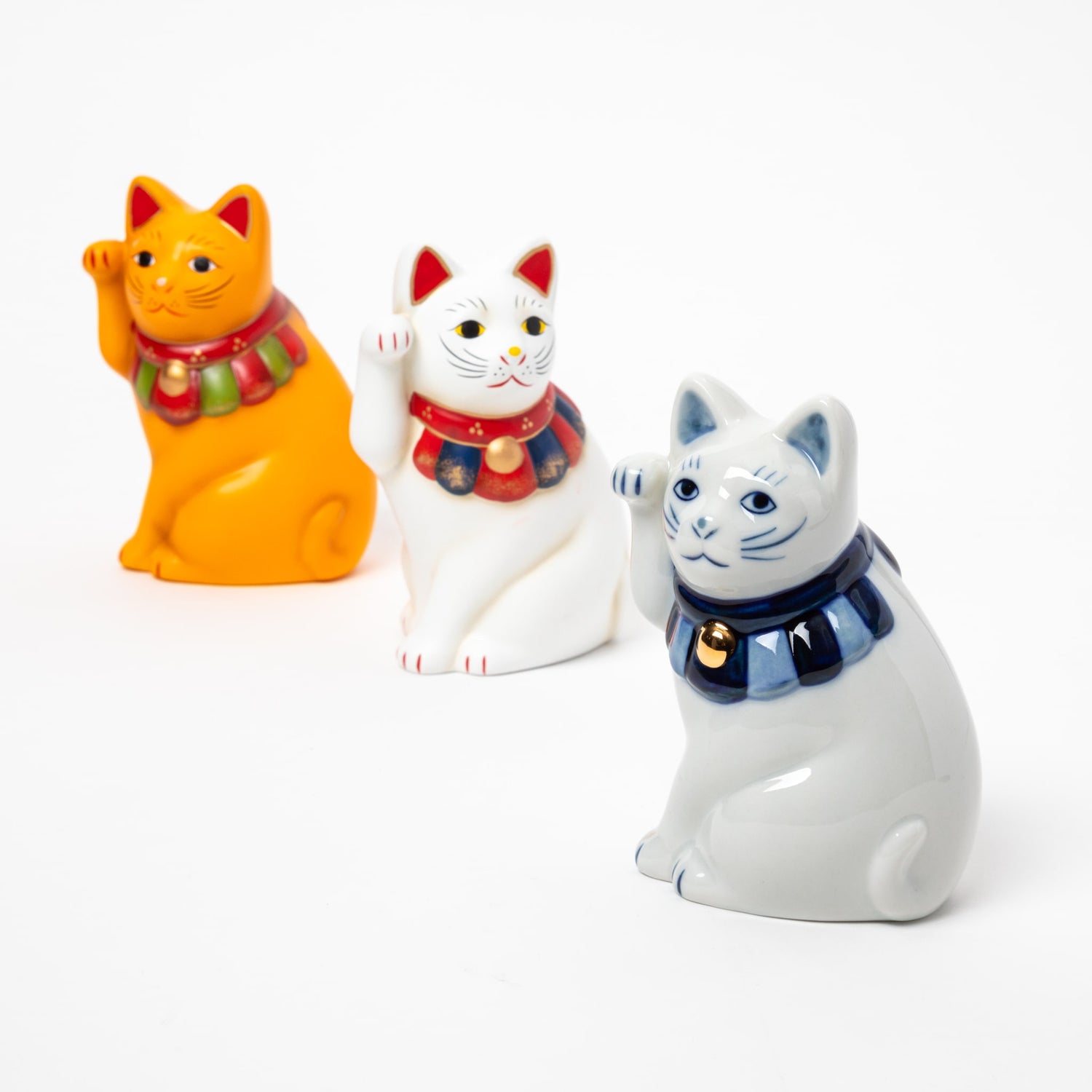Seto Red Yokosuwari Maneki Neko
Seto Red Yokosuwari Maneki Neko
Couldn't load pickup availability
A captivating fusion of tradition and artistry, the Seto Red Yokosuwari Maneki Neko beckons good fortune into your life. Crafted by the skilled artisans at Chugai Toen, this Maneki Neko embodies a unique design element – its slender, almost hunchbacked posture, reminiscent of a real cat. This detail, a charming departure from the typical Maneki Neko pose, finds its roots in European plaster mold techniques used for Seto novelties, a testament to the art form's adaptability.
Further enriching its historical significance, the side-sitting posture echoes depictions seen in Utagawa Hiroshige's ukiyo-e prints, a fascinating link to the Edo period when most beckoning cats were displayed horizontally. Adding to its symbolic appeal, the raised right paw, as tradition dictates, is believed to attract wealth, while the left paw is said to invite good company. The significance of Red Maneki Neko cats lies in their reputed ability to enhance one's health and lifespan, while also ensuring good health. This belief is rooted in the historical context of a time when smallpox posed a serious threat, and the color red was believed to have protective qualities against the disease.
Purchase this stunning figurine and beckon wealth, good luck, and good health into your everyday life.
Detail
Detail
Care & Use
Care & Use
- Check our tips for care & use.
